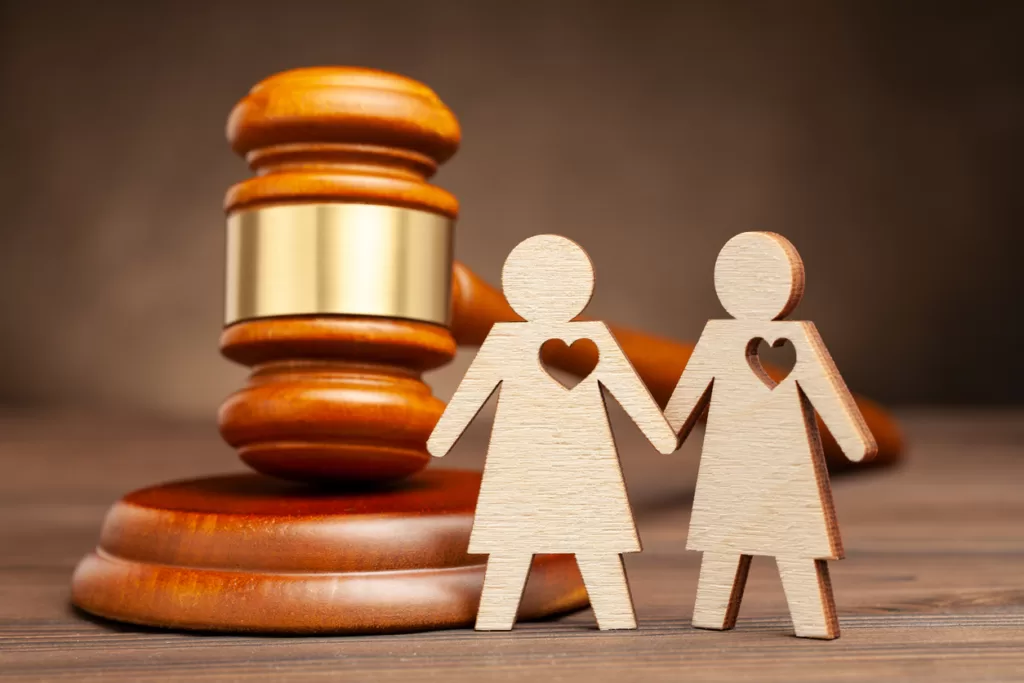The Centre has opposed pleas in Supreme Court seeking recognition of same-sex marriage.

In its counter-affidavit in the Supreme Court, the Centre said decriminalisation of Section 377 IPC cannot give rise to a claim to seek recognition for same-sex marriage, according to media reports.
The submission by the Centre comes a day ahead of the SC’s hearing on a batch of pleas seeking legal validation for same-sex marriages on Monday.
The Central government said that living together as partners and having a sexual relationship with same-sex individuals is not comparable to the Indian family unit concept which involves a biological man and biological woman with children born out of such wedlock.
The latter requires a biological man as a ‘husband’, a biological woman as a ‘wife’ and the children born out of the union between the two, the government said.
“Family issues are far beyond mere recognition and registration of marriage between persons belonging to the same gender. Living together as partners and having sexual relationship by same sex individuals [which is decriminalised now] is not comparable with the Indian family unit concept of a husband, a wife and children which necessarily presuppose a biological man as a ‘husband’, a biological woman as a ‘wife’ and the children born out of the union between the two – who are reared by the biological man as father and the biological woman as mother,” the affidavit stated.
The parties entering into marriage creates an institution having its own public significance as it is a social institution from which several rights and liabilities flow, it was submitted.
Hence, seeking a declaration for solemnisation/registration of marriage has more ramifications than simple legal recognition, the government underscored.
The government also underlined that there can be no fundamental right for recognition of a particular form of social relationship.
“While it is certainly true that all citizens have a right to association under Article 19, there is no concomitant right that such associations must necessarily be granted legal recognition by the State. Nor can the right to life and liberty under Article 21 be read to include within it any implicit approval of same sex marriage,” the government said.
The affidavit was filed in response to a batch of petitions seeking that the right to marry a person of one’s choice should extend to LGBTQIA+ citizens as well.
The government further clarified that though same-sex relations are not unlawful State only recognises heterosexual relationships as the mode of marriage.
“The State does not recognise these other forms of marriages or unions or personal understandings of relationships between individuals in a society but the same are not unlawful,” the affidavit stated.
According to March 13 cause list uploaded on the apex court’s website, the pleas are listed for hearing before a bench comprising Chief Justice D Y Chandrachud and justices P S Narasimha and J B Pardiwala.
The apex court had, on January 6, clubbed and transferred to itself all such petitions pending before different high courts, including the Delhi High Court.
It had said the counsel appearing for the Centre and advocate Arundhati Katju, representing the petitioners, shall together prepare a common compilation of the written submissions, documents and precedents on which reliance would be placed during the course of the hearing.
“Soft copies of the compilations shall be exchanged between the parties and shall be made available to the court. List the petition along with connected petitions and transferred cases on March 13, 2023 for directions,” the bench had said in its January 6 order.
One of the petitions was filed by Supriyo Chakraborty and Abhay Dang, two gay men living in Hyderabad.
Supriyo and Abhay have been a couple for almost 10 years. They both contracted Covid-19 during the second wave of the pandemic and when they recovered, they decided to have a wedding-cum-commitment ceremony to celebrate the ninth anniversary of their relationship.
However, despite the same, they do not enjoy the rights of a married couple, the plea pointed out.